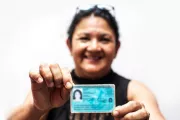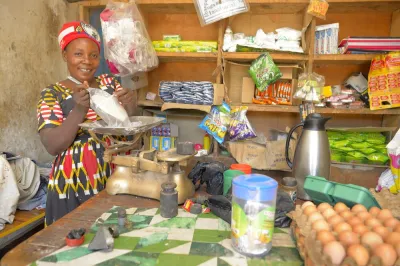Top Ten Blog Posts of 2020

In 2020, the FinDev Blog was more active than ever before. We published 78 blog posts, 28 of which were our regular COVID-19 updates providing a round-up of the latest, most relevant content on financial inclusion and the pandemic. And 28 more were blog posts related to COVID-19, sharing experiences and ideas related to this unprecedented global crisis, as well as providing resources for getting through it. Clearly, the pandemic was the topmost issue on people's minds throughout the year, and the top ten list of most-read blogs reflects this priority, with all ten focused on the COVID-19 crisis.
But it was not all COVID, all the time. So in addition to these top ten, we are including at the end the top three blog posts which were NOT related to COVID-19, to get a sense of what other topics were important for our community over the past year.
Let us know which blog posts - on FinDev Gateway or elsewhere - were your favorites in the comments section at the bottom of the page.
The most-read blog posts of 2020

Urgent: A Rescue Plan for the Microfinance Sector
Based on their publication, COVID19: A Framework for the Microfinance Sector, Ira Lieberman and Paul DiLeo share a proposal for key principles and structures to help MFIs and their clients survive the pandemic-induced economic crisis.

COVID-19: How Is the Pandemic Affecting Your Work and the Clients You Serve?
This was our first blog post as the pandemic went global, and we invited our readers to join an open discussion among the global financial inclusion and microfinance community on the effects of this pandemic and how organizations are preparing to deal with it.

COVID-19 Threatens the Microfinance Sector and the Livelihoods of Those We Serve: Building a Coalition for Collective Action
This was the first blog post of the newly formed Microfinance Coalition, which aimed to raise the voice of microfinance organizations and the people they serve, and to collaborate on the most pressing needs for the sector.

Treating Staff Responsibly During the Pandemic: Three Things to Do Today
How can microfinance institutions get to the other side of coronavirus with customer and employee relationships intact?

Customer Engagement During COVID-19
Three principles for communicating and strengthening relationships with clients through and beyond the current crisis.

COVID-19 Has Made MFI Digital Transformation Even More Urgent: How Can Funders Help?
Belgian development finance institution BIO shares the results of their client survey and how they are changing their practices to better support MFIs.

From the Microfinance Coalition: Call to Action for Investors
After their introductory blog, the Microfinance Coalition shared a series of calls to actions for different stakeholders. This blog post focuses on how investors can support MFIs to respond to the needs of the base of the pyramid during the pandemic.

Will the Pandemic Exacerbate or Mitigate the Digital Gender Gap?
COVID-19’s disproportionate impact on women must be urgently addressed through the provision of digital financial literacy and access.

A Second Wave of Economic Hardship May Be Looming for MFI Clients
Survey data from 60 Decibels show that despite improving MFI performance, clients are becoming more vulnerable as the COVID-19 crisis goes on.

Can Cash Transfers to Digital Wallets Be a Lifeline During the Pandemic?
BRAC's experience in Bangladesh shows how digital wallets can act as a tool to include low-income households, especially women, in the financial system.
And here are the top three non-pandemic related blog posts of 2020 - reflecting the trending topics of fintech, women's empowerment, digital ID and digital currencies.
The top three non-COVID-19-related blog posts

Can You Get to Know Your Customer Through an App?
Ibrahim Eid, whose Valify solution won the 2019 Arab Financial Inclusion Innovation Prize, explains how e-KYC works and how a digital identity can give customers access to financial services

Empowerment Begins With Identity
Opening a bank account in many countries is a cumbersome process requiring official documents that women often don't have. Digital ID systems can make this process more accessible and help enable women’s financial inclusion.

Will Digital Currencies Be the Next Revolution in Financial Inclusion?
Growing interest in stablecoins and digital currencies leads us to ask some key questions about their potential for the underbanked.
Contributed by a global financial inclusion community member. Share your lessons learned
Write for usLeave a Comment
Comments on this page are moderated by FinDev Editors. We welcome comments that offer remarks and insights that are relevant to the post. Learn More


